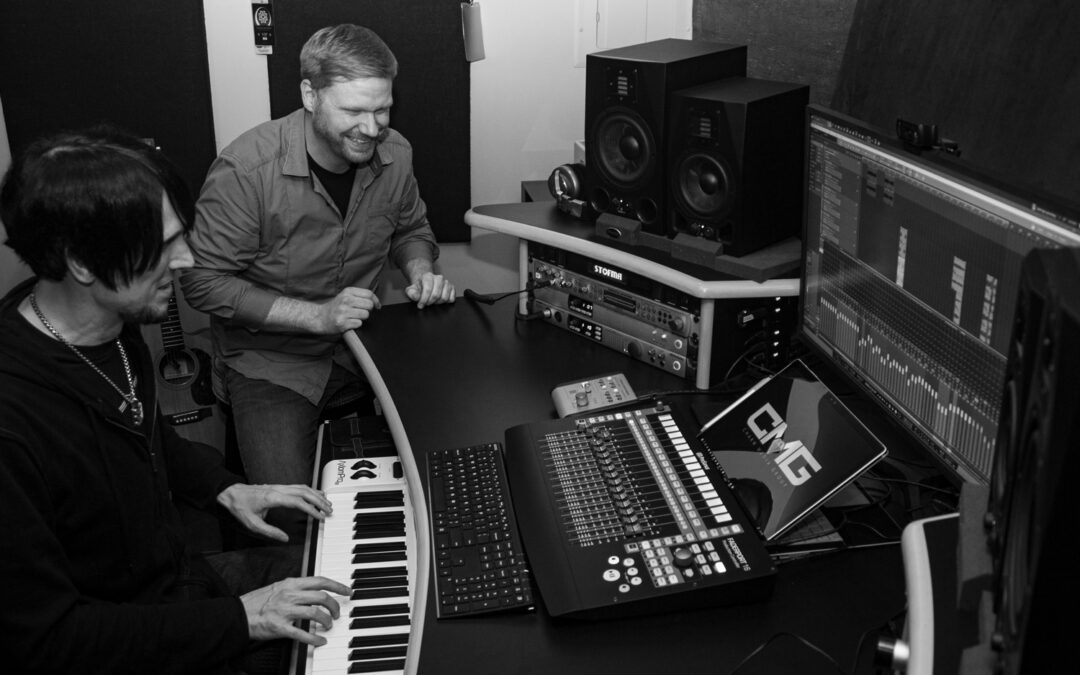As someone that is about as far from a music/sound engineer as possible, it’s easy for me to recognize the unique facets of the various spaces I have been lucky enough to explore and expose through these monthly features, or perhaps it’s more that I discover details my naivety allows me to deem more unique than others may. Though, with that being said, and considering each place has it’s own undeniable style and atmosphere, Charm Media Group (and owners Travis and Rob) surprised me in ways that further backed up their expressed goal of bringing something new to the area. Something that while increasingly common and popular in California, which is partially where the idea blossomed, as Rob, one of Charm Media’s owners, recently found himself returning to the QCA after living in The Golden State, has yet to catch on in the Midwest. Of course we all know how it takes some time for the influence of the coasts to infiltrate the Midwest, and Charm feels like they have their finger on something that could become a lot more desirable in the area; an immersive, all in-house operation of sorts.
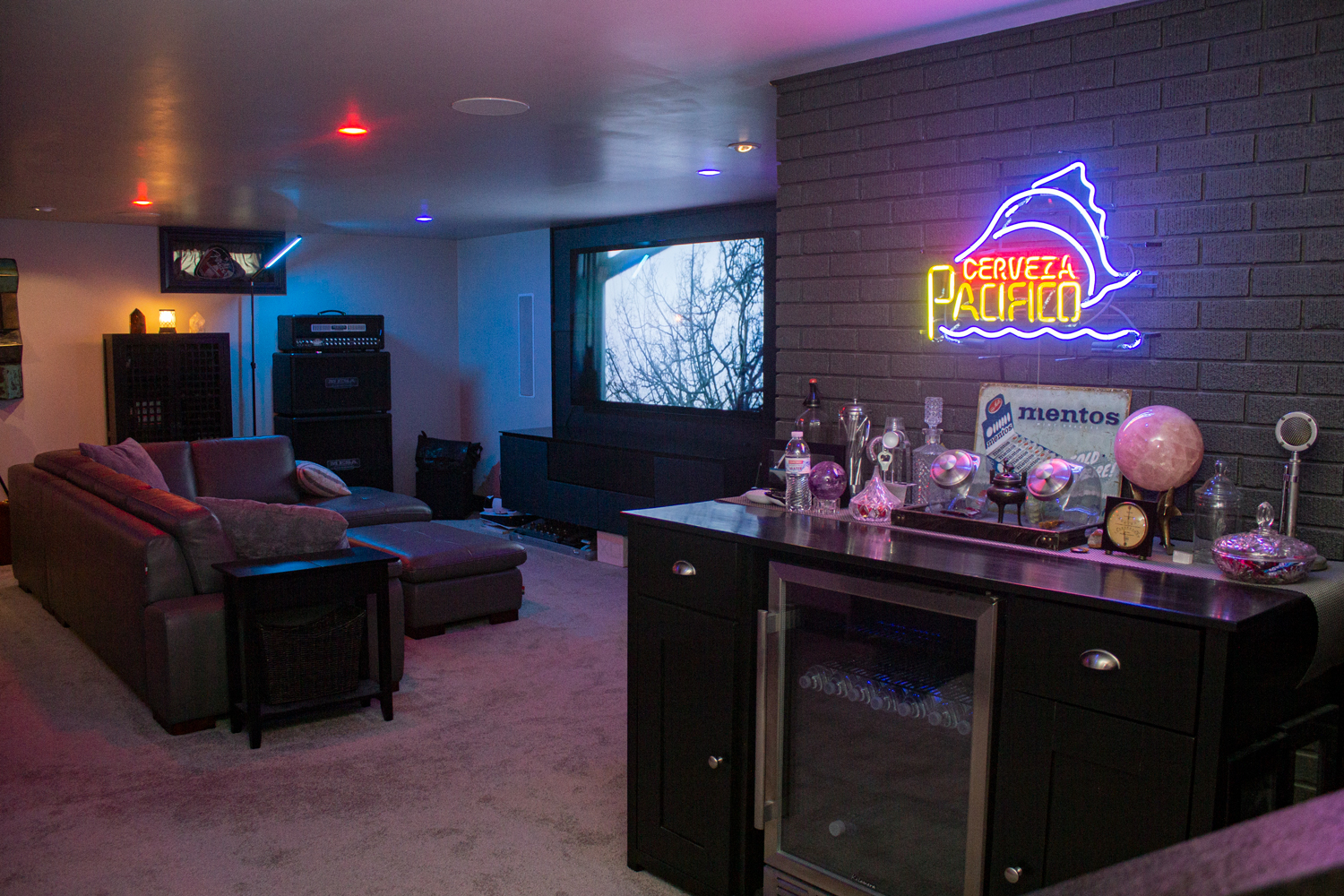
As I arrived there was nothing about this home, planted in a very average Geneseo neighborhood, that would cause one to expect it to house what I was about to experience. As the name suggests, Charm extends itself far beyond a studio where a band would come in for a day or weekend of tracking. They provide an expansive, yet very inclusive, offering where bands quite literally live within the home, at times for upwards of 90 days to focus on writing, creating, and completing enough work to comprise an album. This approach allows a retreat, where musicians can take the time and space necessary to work on old and new ideas alike without feeling rushed. It is a space where one can work on a new track, and in between takes relax in the lounge area of the basement while listening back to tracks through a state-of-the-art sound system wired in the space beneath the main level’s floor. Speakers lying flush with the ceiling, in addition to a few built into the wall, provide a full Dolby sound system ideal for hearing playback of what you’ve been working on.
After initially taking in the space, I turned away from the large television screen where video playbacks can be watched, video being yet another thing offered by Charm Media, and was informed I would probably want to shoot a photo of this unassuming bookcase splitting the space between the basement entrance and the bar which filled one corner of the room. As soon as I got the shots I needed this unexpectedly hinged shelf revealed itself to be the access point to the heart of the studio operation and vocal booth. Adding even more depth to the room and studio space as a whole.
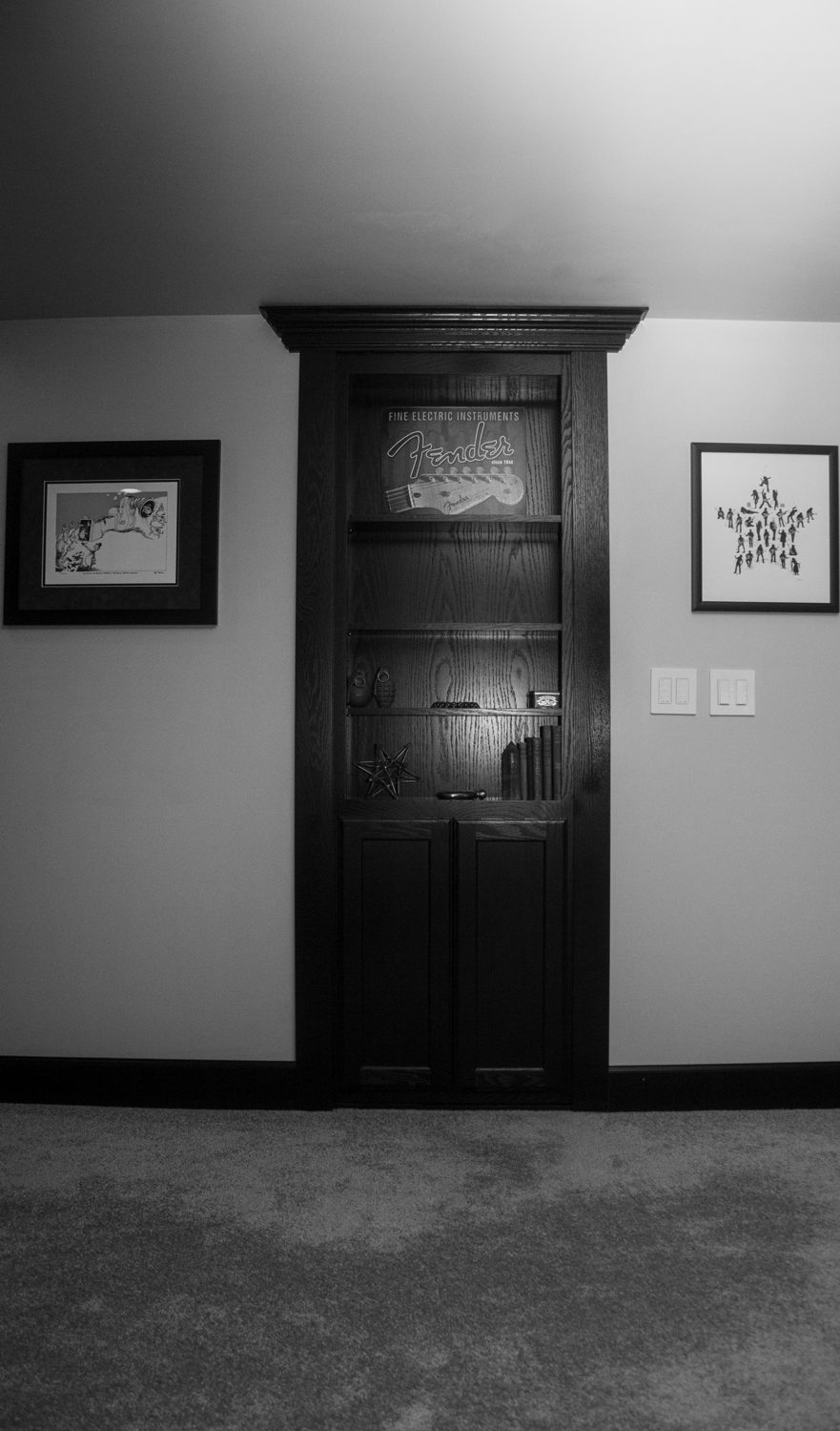
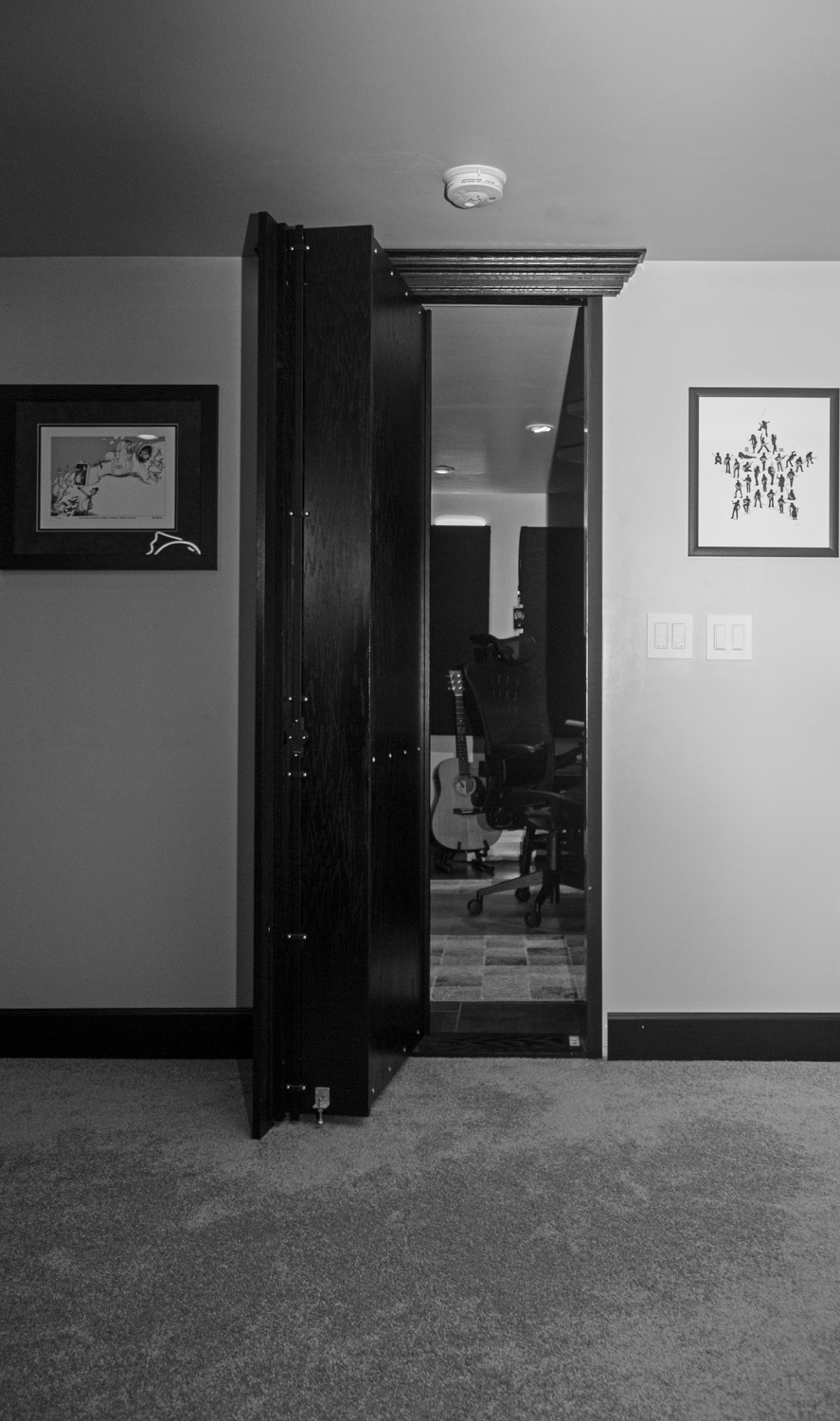
Charm Media may feel a bit off the beaten path, and as someone that grew up in the QC, I could count on one hand the amount of times I have ventured to Geneseo. However being off the normal path is a major part of their appeal, and I contend you to find another studio locally providing this level of immersion. One that offers musical production work, a place to stay/live while expanding one’s expression, as well as providing videography and photography where requested. They even recently created a film, “Everything Fun To Do In Aledo” (Keep checking their social media for updates related to this film). Considering that both these guys are musicians in their own right, there’s no shortage of creative dexterity to be found here.
Echo: How did you get into the music studio business? Were you (are you still) playing in any local bands in the area, or does your interest focus mostly in music production and not creating the music, so to speak?
Travis: When I was 16 I helped create a band called The Dawn Retreat and we landed a deal where we got to work with this artist development group. When we started that process we got to work out of an industry standard studio in Dublin, OH and it was the most crazy experience to me at the time. I instantly fell in love with recording and the art behind it all. Locally I have played in bands such as The Dawn Retreat, The New Classics, SH!, Dear Divine and Hello Ramona. I mostly just record now, but this summer The Dawn Retreat will be releasing a new album along with a series of music videos with a release show on June 30th, 2023.
Rob: I was born into the music industry. My father and much of my family are all musicians. I started playing music at age 7 performing at school and other events starting with a harmonica. I then moved on to guitar and other stringed instruments. I was offered deals as an understudy and performance arts by the age of 9. However, my parents weren’t as open minded at the time for me to involve myself to that degree. I had formed and performed in several local bands in my early teenage years, ultimately ending up with a deal to move to California with one of my bands “Circle 7”. “Circle 7” had moderate success until the lead singer had to relocate back to family for medical purposes. My next band “Star Off Machine” had great success starting on the west coast and then multiple tours across the states. I studied at LARS in Los Angeles for a period of time in between changeups and then started producing music while touring or on break into my mid 20’s.
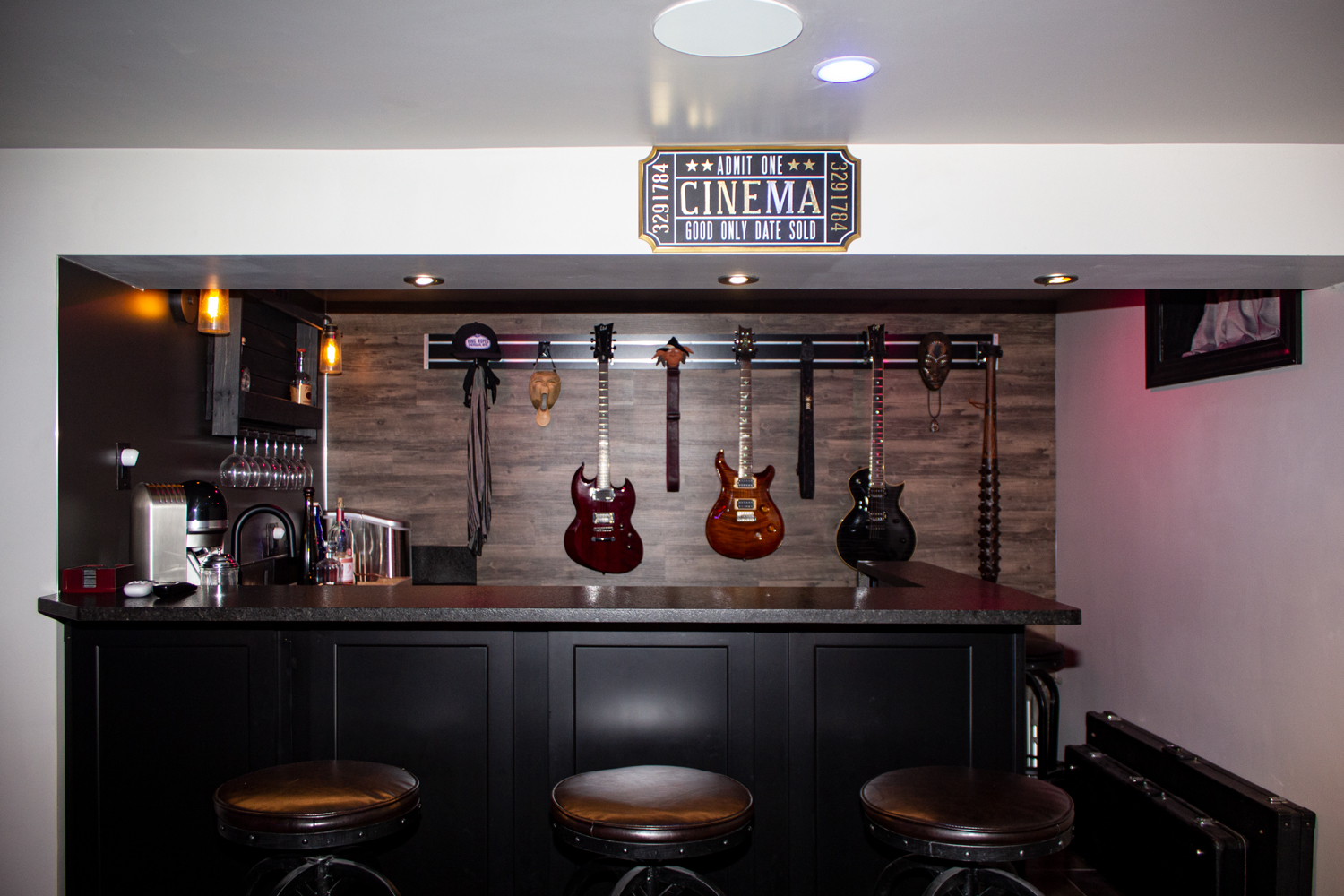
Echo: Are there any specific genres or artists you’ve really enjoyed working with throughout your career, why so? Is there any specific style of music/musician that you believe your studio/production style excels at?
Travis: Honestly I love working with pop/rock or indie rock bands the most. Recently we have been working with a lot of local rappers and I have really enjoyed that experience. During those sessions I really get the chance to mostly focus on the vocals and it’s always fun trying to create fun ideas to make certain parts stand out within the track. It’s kind of insane how much talent is here in the QCA. Everyone we have worked with is talented and we love trying to bring out the best in each artist we work with.
Rob: I have a special place in my heart for rock/hard rock music, however, I have been open to all genres of music since sitting in a studio environment. Agreeing with Travis on enjoying the opportunity to work with rap artists and focus on post production heavily while living in the Midwest has been especially fun because I feel there aren’t many other outlets that do this type of post production work to industry standards in their respective fields. Having the ability to work with artists who haven’t had a chance to work in larger studios really makes the hours tick by quickly. It’s a lot of fun. When we started this studio flow, I had gone through multiple partnerships locally with little success due to burglary and unprofessional behavior. After landing the “Ghost Town” project for “In The Flesh” I met Travis and we got along very well. I am very proud of that record.
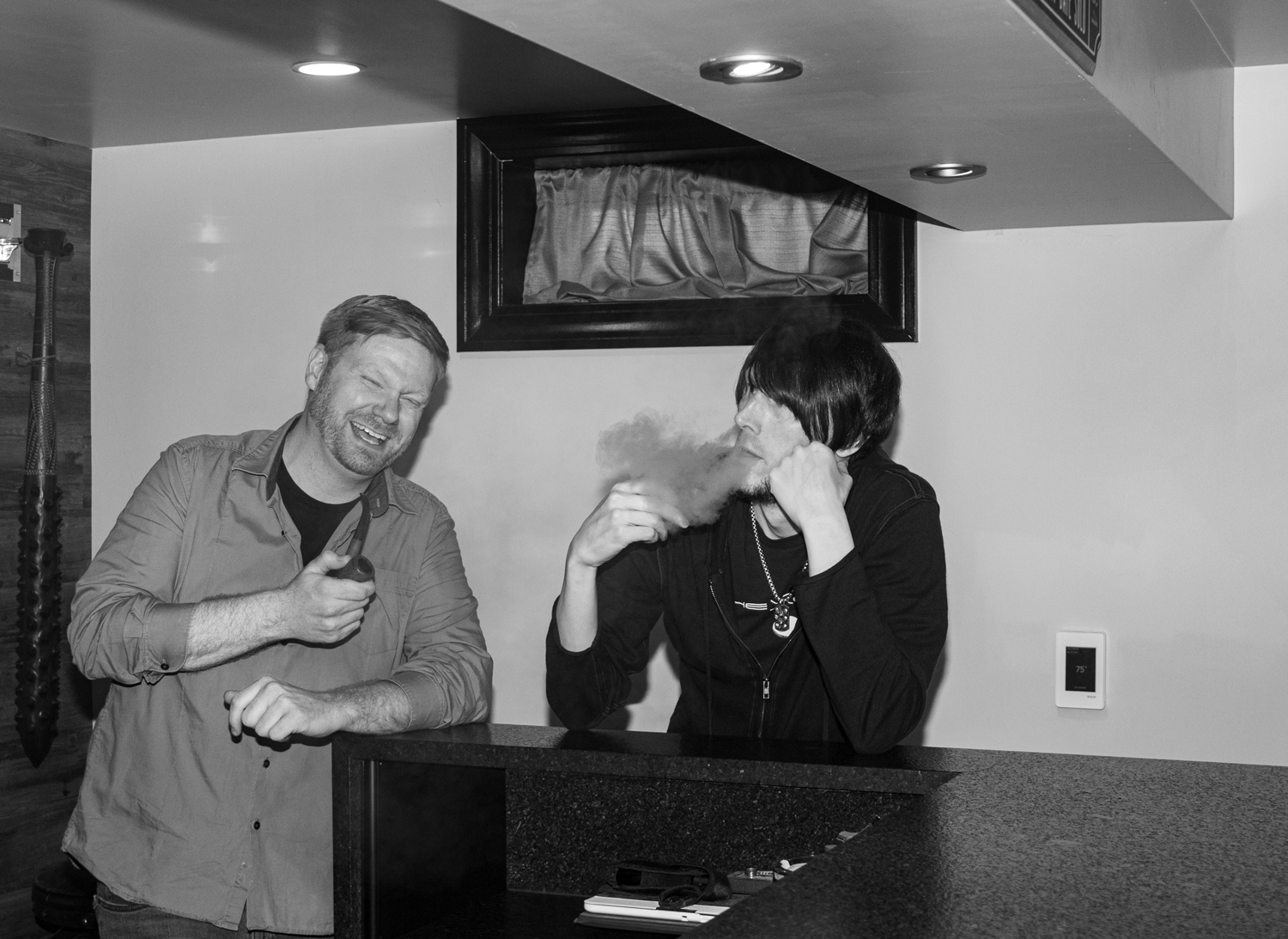
Echo: For the artist, what is the best way for them to make sure their track is recorded and produced to the best quality when they come in for a session? Of course time/costs can play a major role, outside of practicing/having songs dialed in, are there any suggestions you have for an artist in preparation for time in the studio?
Travis: The best advice I give to prepare a client for a session is to understand demo-titus. Always be open minded in the studio when bringing everything together. Sure demo tracks are great at capturing the idea of the song and sometimes you lay something down that can’t be recreated which is always a good idea to make sure you at least get clean recorded tracks when recording demos just in case you end up using it in the final version. Have an open mind, know your song (structure, BPM, keys, tempo changes) and have fun with it.
Rob: I strongly agree with Travis on this. The QCA is an interesting area to produce in. Most new clients have not been exposed to larger studio life, and I feel we bring that expertise to these artists at a fraction of the price.
Echo: Let’s settle the debate: Which is the best digital audio workstation(daw)? If you don’t feel there is but a workstation to deem the best, is there one you like to use in particular? What is the most beneficial aspect of using this DAW?
Travis: I have used almost every DAW out there. I started with Magix and then stepped up to Sonar and then upgraded to Pro Tools. After a few years of using PT I switched to Logic and that was my main DAW for quite some time. I tried learning every DAW as much as possible so I could be well diverse in any setup. If you are on a budget Reaper works well. It is very custom and there are several engineers out there that swear by it. Recently in the past 3-4 years I have been using Studio One and after working with this DAW and learning a lot about it I would have to say it’s the best DAW out there. Everything that comes out of CHARM is recorded with Studio One.
Rob: I studied video editing and effects before studying music, so my first recording DAW was Adobe. After using nearly every PRO audio DAW the majority of the industry uses, I settled on Studio One. Working with people at Activision/Blizzard Entertainment, I learned that the most favorable and flexible DAW was Studio One as they predicted many many years ago. You have to listen to the nerds in the trenches sometimes!
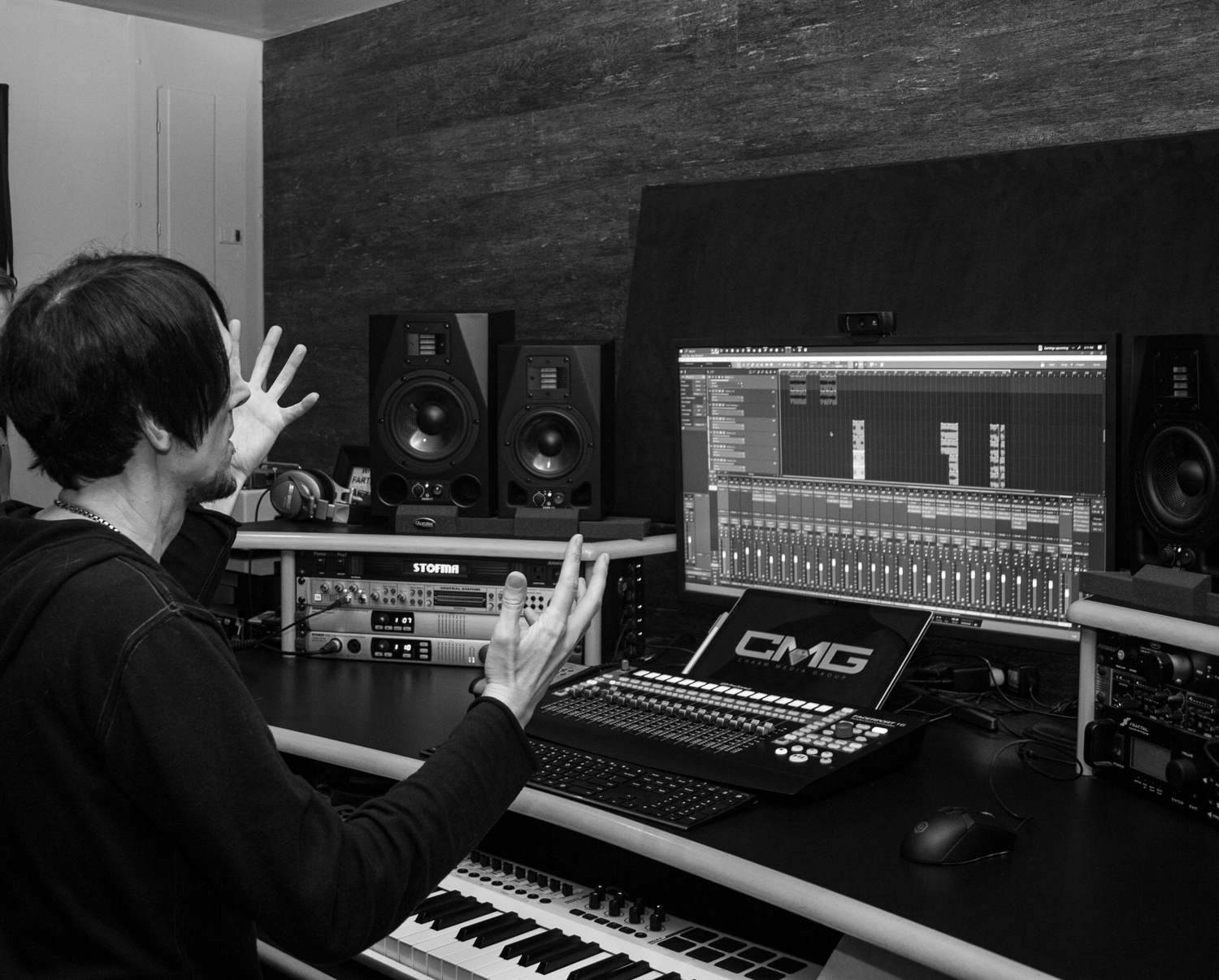
Echo: With so much technology involved, what are your favorite pieces of gear made available to artists that use your studio? Are there any pieces of gear that make your studio even more unique and/or help the studio stand out?
Travis: We are a modern day studio so we have a really nice digital setup over analog. We can get our hands on pretty much anything and everything if needed. I am a really big fan of our AKG C214 mic, it’s one of my favorite mics I have ever used. We also have a nice collection of some really nice guitars. PRS, Gibson, Fender, Epiphione, Martin. Although we do most tracking in the box for guitars we still have a few nice amps at the studio that can be used as well. Mesa so, 4×12 cab, Bogner 2×12, Blackstar. In general I really like our control room setup. We have a nice Presonus live mixing board with Adams speakers paired with a JBL and Adam sub and our room is acoustically treated to perfection. Mixing and Mastering in our control room is one of the best in the area.
Rob: I’m agreeing with Travis again on this point. If we don’t have what is needed for a session, we can get a hold of the gear as needed asap. Otherwise, we haven’t had any issues thus far. We do tend to stay in the digital realm for the most part, but we also have some of the finest analog gear as well.
Echo: We know artists will always attempt to make audio recordings in their own home? Are these recordings something you can traditionally/commonly work with? If so, what’s the best way for them to do so? If not what causes the biggest issue with home recordings?
Travis: I am always a fan of recording demos or any pre-production work. It gives me a great chance to listen to what has already been created to come up with stronger ideas or help find the vibe so I am able to deliver the sound the artist is going for. When bringing material to the studio it is also nice to have a dedicated engineer and producer during the session. I have recorded many times with other studios when I was performing in my band and even though I knew how to record, mix and edit it was super nice having someone else do that work while I got to focus more on the writing side of things. I know a lot of artists can record out of their bedrooms now and almost achieve the sound they are going for but like I said it’s better to go somewhere to a place you feel comfortable and have a team that you can trust to work on your project. It’s less of a workload for yourself and you’ll have a team of professionals working on your project.
Rob: There is almost always room for improvement over someone who recorded in a bedroom budget studio. However, sometimes a phrase or riff can’t be completely redesigned with the same magic for whatever reason. If there is gold in the demo, we will utilize it.
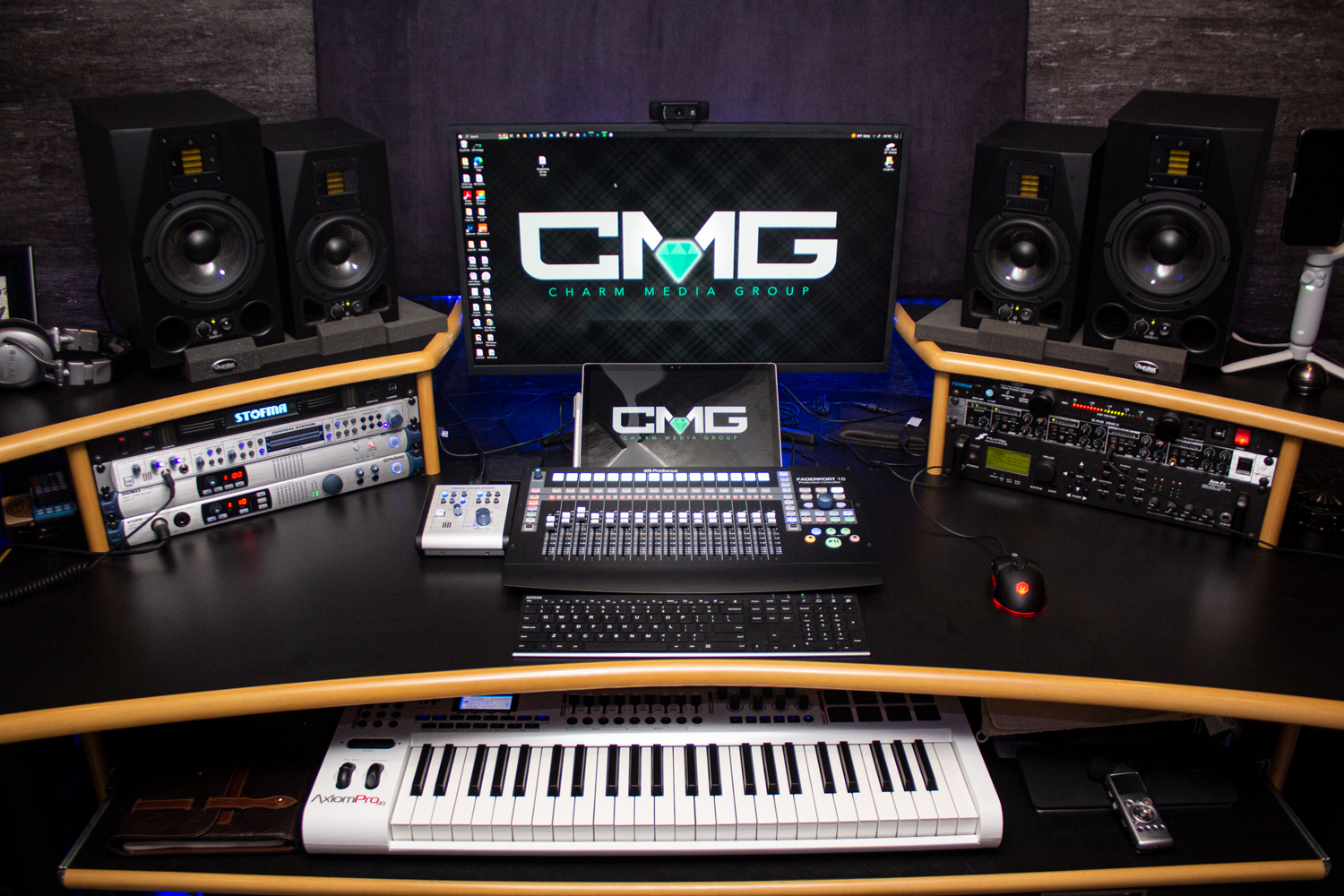
Echo: What are some of the biggest hurdles you’ve faced as a music studio, either anticipated or otherwise, and what did you do to overcome these temporary blocks?
The hardest thing is mostly just staying on top of everything in a timely manner. We are a busy studio and we have a lot of clients that we work with. Keeping track of each project with their due dates and releases is sometimes challenging. When we started getting busy we decided to start building a team so we can delegate the workload and make sure we can deliver every single time. Keeping the client/artist motivated and focused is another hurdle at times. Creating art can be tiring and can have take a toll on you and artists like to bring themselves down about what they put out so we are good at encouraging the artist and keeping them focused during the session so they are happy with the end product. Also, there are some very talented people we work with that could reach so many more ears and eyes that deserve to share their message with the world. It’s not always in the budget, but we will do our best with industry contacts to try and help as much as possible.
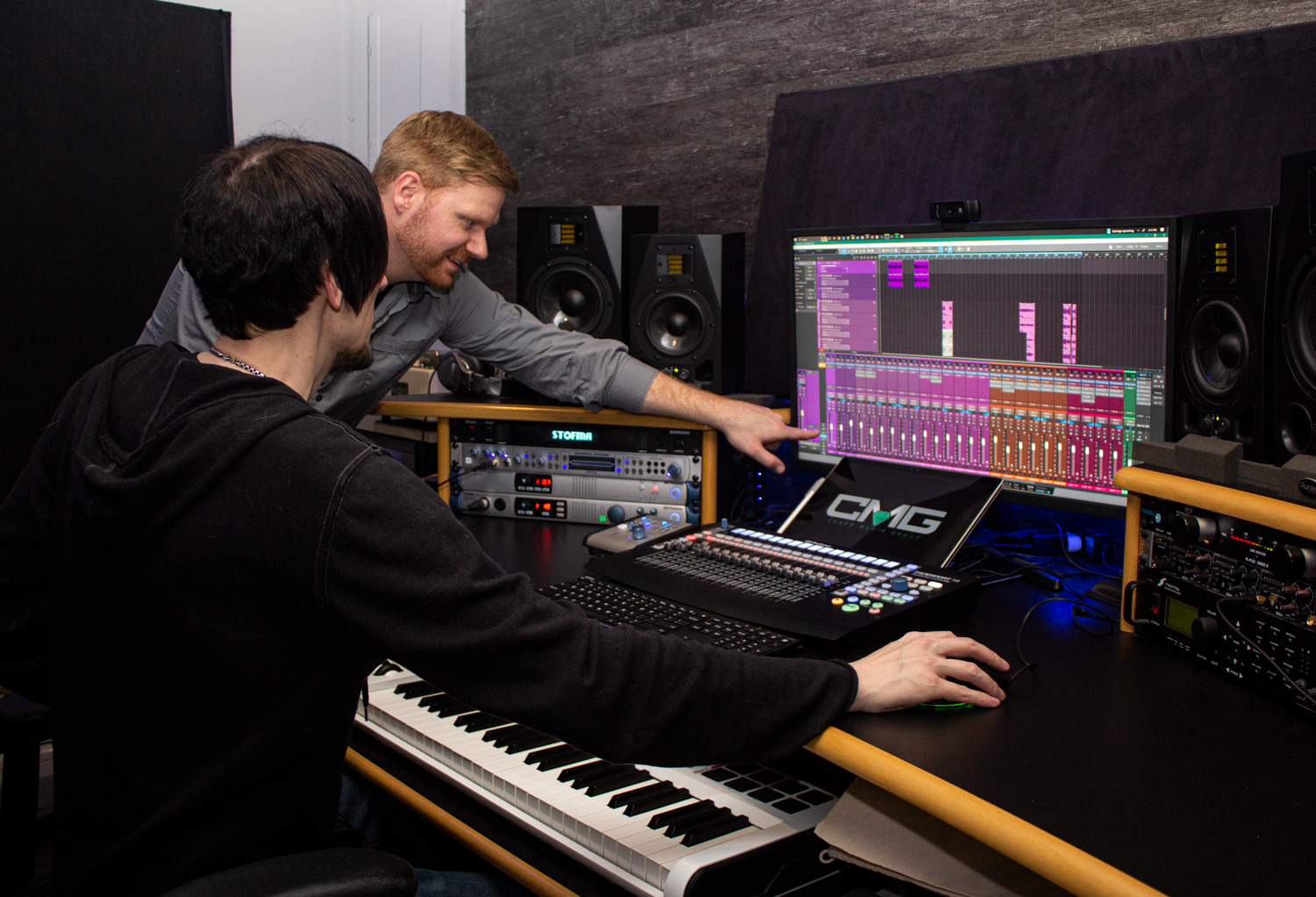
Echo: What are some of the biggest hurdles you’ve faced as a music studio, either anticipated or otherwise, and what did you do to overcome these temporary blocks?
The hardest thing is mostly just staying on top of everything in a timely manner. We are a busy studio and we have a lot of clients that we work with. Keeping track of each project with their due dates and releases is sometimes challenging. When we started getting busy we decided to start building a team so we can delegate the workload and make sure we can deliver every single time. Keeping the client/artist motivated and focused is another hurdle at times. Creating art can be tiring and can have take a toll on you and artists like to bring themselves down about what they put out so we are good at encouraging the artist and keeping them focused during the session so they are happy with the end product. Also, there are some very talented people we work with that could reach so many more ears and eyes that deserve to share their message with the world. It’s not always in the budget, but we will do our best with industry contacts to try and help as much as possible.
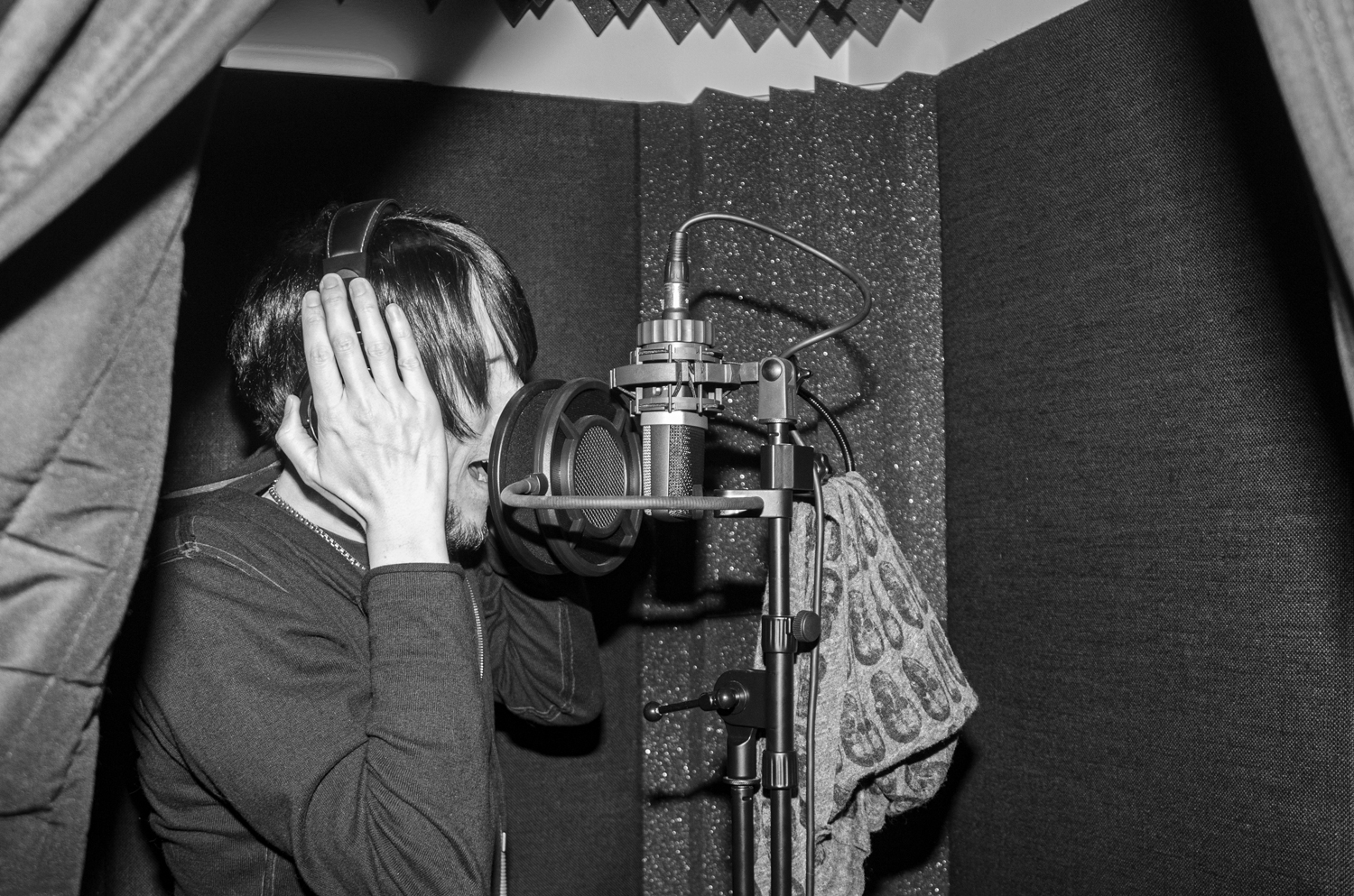
Echo: In closing, what music/musicians have you been hooked on recently? And are there any local artists you’ve worked with that we should be on the lookout for/more people should know?
Travis: I am a fan of Caleb Shomo of Beartooth. I have always followed him, even when he was with Attack Attack. I have seen him play a few times. He also records, and is an inspiration to me with life as well as on the music side of things. I can’t narrow down any local artist but I can tell you Threezus, Mitchell T, Revo and Sirified helped me get back in the game with recording again. I took a few years off and those groups of guys made me fall back in love with it again. I will always appreciate them.
Rob: Travis has listed many of the emerging artists that we both agree upon here in the QCA. There are some other studios and artists that we work with across the country such as Razatti in Maryland. We bounce work back and forth to create some really great songs with various artists depending on genre, most of which do very well in the public eye/ear. We have a lot in the hopper and are looking forward to mastering these projects for the masses to hear.
As touched on in the interview, though more focused on the production side, both Rob and Travis are active/life long musicians, and the latter’s band, The Dawn Retreat, will actually be playing an album release show June 30th at Skylark in Rock Island, (the studio/event space featured in our May studio spotlight). The Dawn Retreat’s album was tracked at CMG, with some additional work actually taking place at Skylark, showing the real connection that exists in this scene.
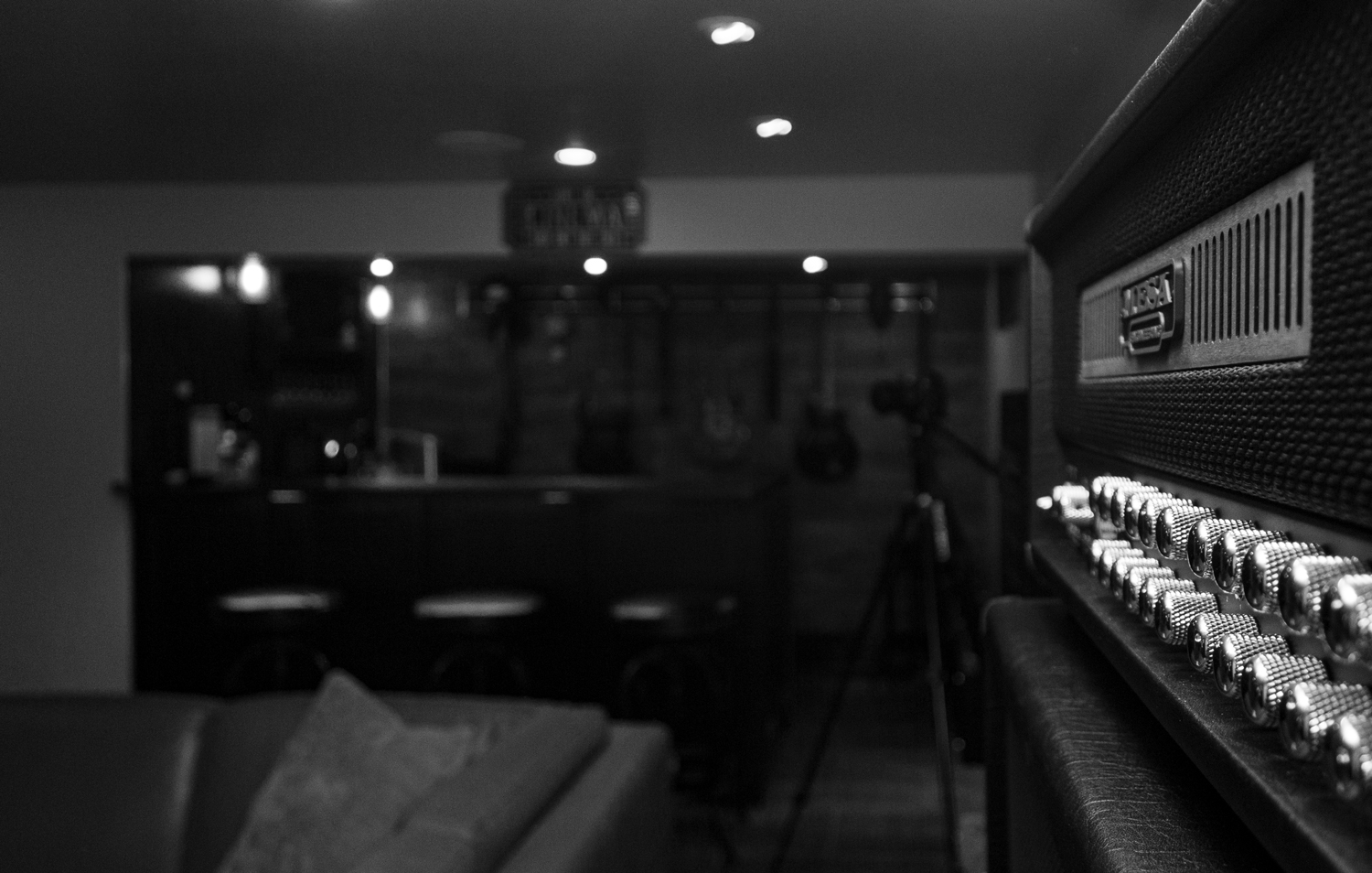
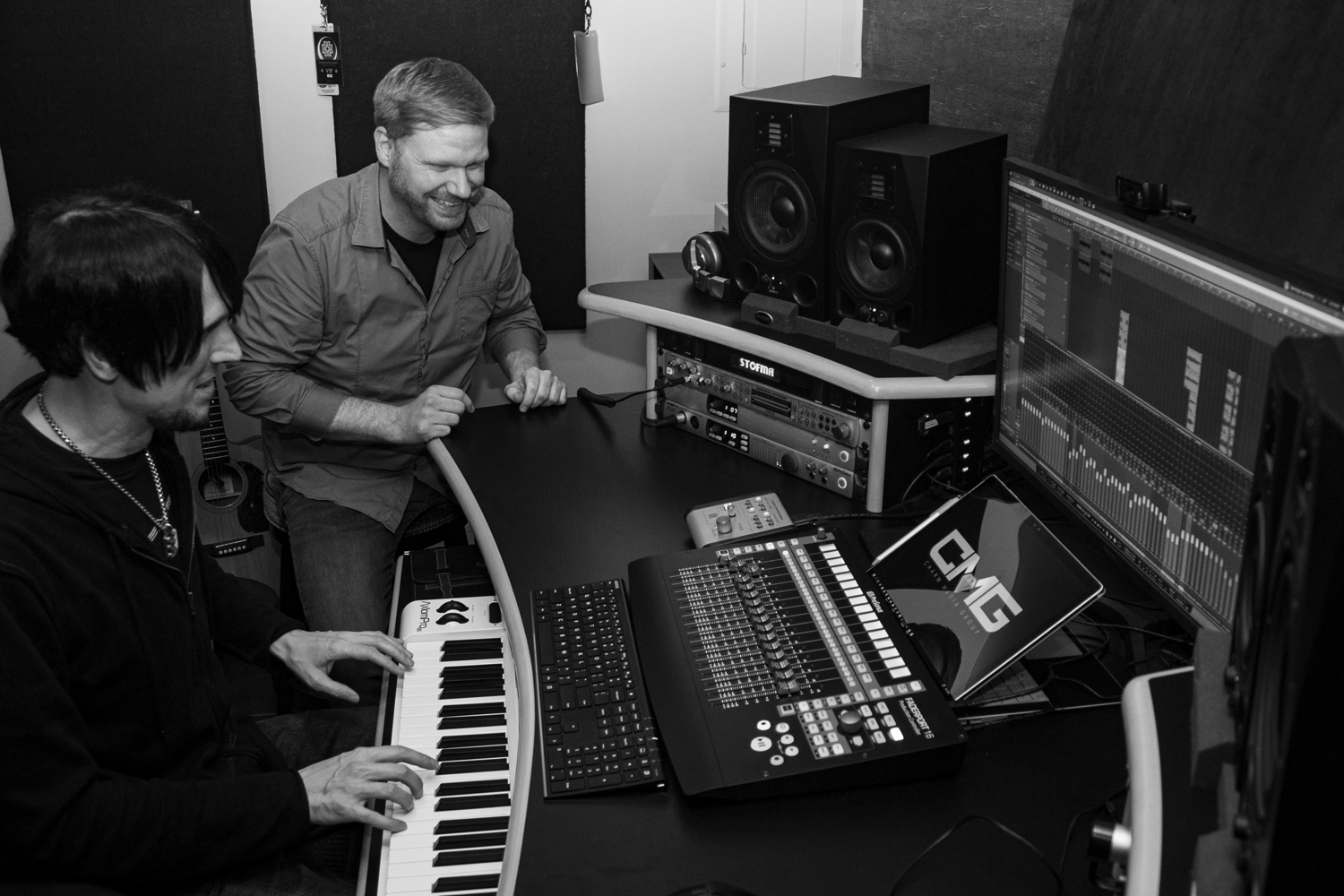
ECHO STUDIO OF THE MONTH:
SOCIAL MEDIA:
CONTACT:
Travis Harms – co-owner
Rob Charlet – co-owner
Phone:
(309) 428-5774

